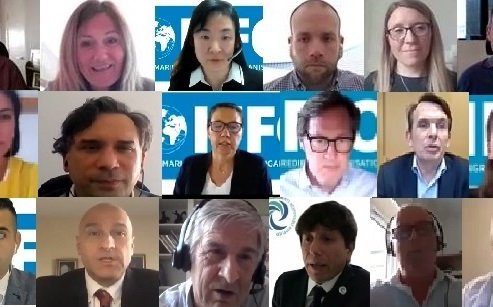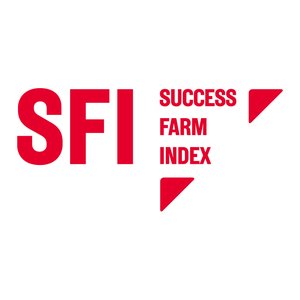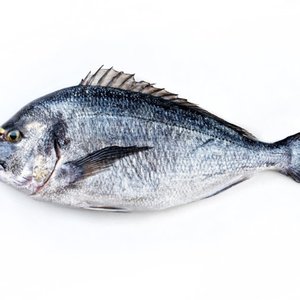The Marine Ingredients Organization (IFFO) hosted a webinar with all members of the organization and provided the latest insights from nearly 20 speakers on the global fishmeal and fish oil markets, in-depth country presentations and new research insights.
The panel looked at salmon and shrimp market trends. All panelists, from Allan Cooper (Vitapro S.A.) to Therese Log Bergjord (Skretting), Aisla Jones (Co-op), Odd Eliasen (Havsbrun) and Jonathan Banks, underlined that sustainability, transparency and communication with consumers are central to the future of aquafeed. Documented facts and figures on seafood’s carbon footprint, nutritional properties of fishmeal and fish oil and sustainable harvesting of fish stocks demonstrate aquaculture’s success story.
Throughout the COVID-19 pandemic, a major shift has happened mainly in the shrimp sector, with some changes occurring also in the salmon industry. Supply chains have adapted to allow for a move to retail to be made. Digital transformation, through analytics, will be the way forward to improve service, traceability and feed efficiency.
According to the panel, climate change presents new challenges to fisheries governance and management. Scientific knowledge is providing strategic thinking to take relevant adaptation and mitigation measures. IFFO’s president and director general emphasized that collaboration between stakeholders from public and private sectors ought to be strengthened, as fishery management principles depend on a combination of regulations, law enforcement and scientific as well as technical knowledge.
Petter Johannessen, IFFO director general, said that “there is a need for 20 million tons of additional farmed seafood towards 2030. In this decade, 25-30 million tons of additional feed ingredients are therefore required. Collaboration will be of vital importance for securing enough healthy food for the ever-growing global population.”
Developing an innovative traceability system that includes all activities from fishing to feed, using key information such as species, catch area, gear, vessel name, fishmeal plant, is key to fulfill the environmental and commercial objectives (IUU and origin) of the market, according to the panel. MarinTrust, the leading third-party accredited certification standards for marine ingredients, explained that such a project was on its way. Interoperability is key, which explains that a long-term perspective is needed.
IFFO’s webinar concluded that true innovation lies in collaboration, which creates trust and cross-sectoral thinking. Science and technologies should be mobilized to create solutions at realistic scales and costs for the benefit of all customers and the next generations.













